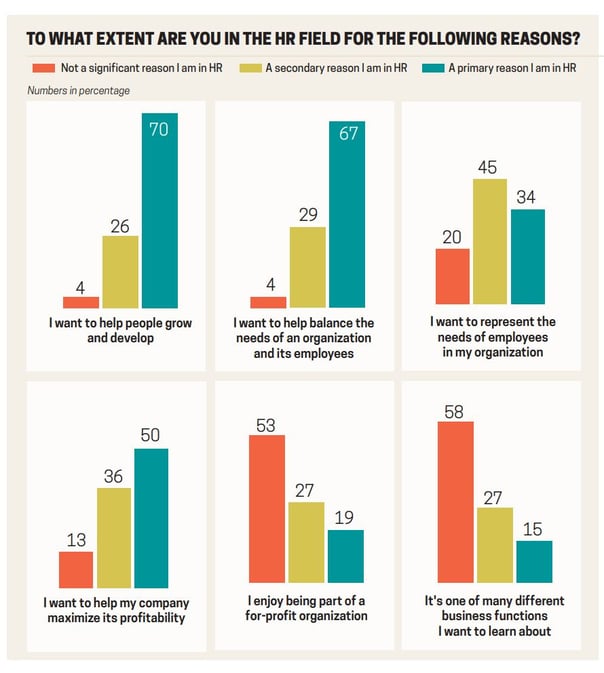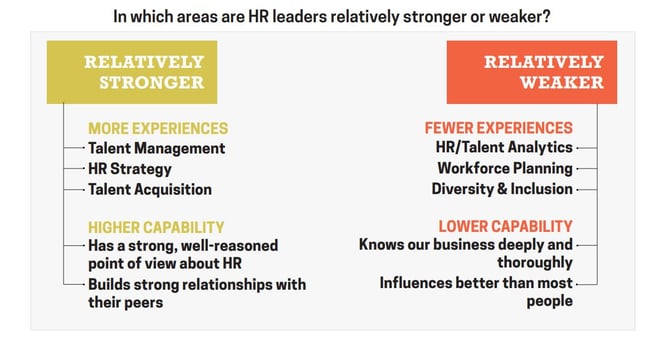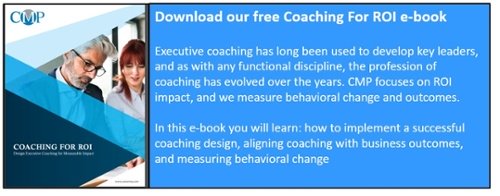What drives HR Leaders?
Is it career ambition, serving people, or is it something else?
I just finished a fascinating research study (2019 Global HR Census Report – The Talent Strategy Group) that provided some interesting insights about HR Leaders.
The key findings from the study were:
- HR Leaders prioritize people over the business.
- While HR Leaders have substantial experience in the core HR disciplines (talent acquisition, talent management, and business partnering), they have less experience in key disciplines that will be important in the future: diversity & inclusion, analytics, and workforce planning.
- HR Leaders are not ambitious. Only 40% of those surveyed aspire to be CHRO.
- HR Leaders have healthy physical and emotional well-being, with 60% saying that their work/life balance is very well or well balanced.
What does all this mean? Let’s dig in and take a look.
HR Leaders Prioritize People Over Business
The Talent Strategy Group (TSG) research provided the respondents with six reasons why they were in HR. Three of the choices were people-focused (example: I want to help people grow and develop), and three were more business-focused (I want to help my company improve its profitability).

Source: Talent Strategy Group - 2019 Global Census Report
The study showed that HR Leader sentiment was far stronger for the people-focused reasons versus the business-focused. This preference is not that surprising because people enter HR because they want to work with and develop employees. While they do care about the business, they see their primary responsibility to be helping employees.
When TSG segmented the responses by HR sub-function, it found that HR Business partners had the most even balance between people and business focus.
The most significant imbalance was seen with Learning & Development - not surprising since the L&D function is the most centered around employee development. It is also the first budget that seems to get cut during a business downturn.
HR Leaders Have A Gap For Next Generation Skills
According to the TSG study, HR Leaders rank themselves highly on all of the areas where you would typically expect them to excel – talent management, talent acquisition, and HR practices. The study also showed that the areas where HR Leaders ranked themselves lower were all business-focused areas where they have been criticized for not knowing the business or the key metrics that drive value.

Source: Talent Strategy Group - 2019 Global Census Report
The study points out that the critical processes of the future – analytics and diversity & inclusion – are the areas where HR Leaders rate themselves the lowest. This lack of knowledge will hold back HR from being a relevant member of the management team of the future.
HR Leaders Are Not Ambitious
It was very revealing to me that:
“The majority of HR leaders limit their career goals to within the HR field – a reasonable expectation for any business function. What’s surprising is that just 4 in 10 HR leaders want to lead their function in the CHRO role. If we exclude respondents who are already in the CHRO role, that percentage drops to just 3 in 10.
This finding raises a question about what makes the top HR job less attractive or other opportunities so much more attractive that few of those in the function desire it”.
The vast majority of my career was in marketing. If the same career aspiration questions were asked to Marketing Leaders, I can safely say the vast majority would say they aspire to be the Chief Marketing Officer or CEO.
These career aspirations (or lack of) of HR Leaders would indicate that they will be:
- More cautious (why take the risk?).
- More conventional in their thinking (they operate only within the HR space).
- More interested in career fulfillment and work/life balance versus advancement, power, or influence.
HR Leaders Are Well Balanced At Work and Home
The TSG study shows that HR Leaders, as a group, are managing their stress, well-rested, and work a manageable number of hours (52% report that they work between 41 to 50 hours per week). These results support the fact that many HR Leaders have struck a positive balance between the demands of career advancement with being an engaged professionals, adding value to the organization in a position that they value.
Summary
I would encourage everyone to read the full report. I also want to thanks Lance Haun, who brought the study to my attention with his Tech@Work Weekly blog.
The Talent Group Study shows that HR Leaders are proud professionals who are people-focused, and believe that they can help their organizations by finding great people, supporting them with development opportunities, and supporting their business units on all people-centered needs. Many of the leaders are not as plugged into learning “the business” because they are not driven by trying to be “Class President” (a good thing – my opinion).




